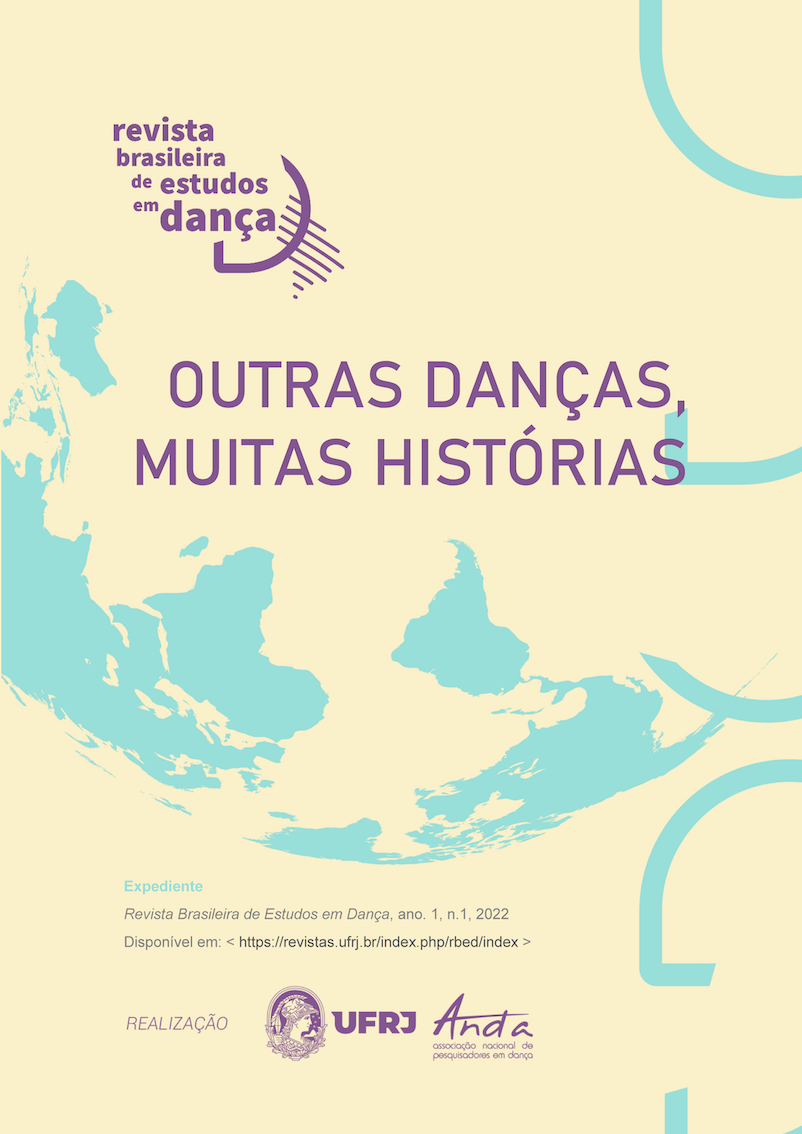From Colony to Independence:
Choreographic Narratives in Search of Identity in Dance in Mozambique
DOI:
https://doi.org/10.58786/rbed.2022.v1.n1.52700Keywords:
Tradicional Dance, Indentity, Building the new man, Identity narrativesAbstract
The aim of this article was to understand the evolution of our dances in a country that has gone through a process of colonization and other political, social and economic influences. To this end, through a bibliographical review, the history of the construction of the Mozambican nation in various phases was covered in order to understand the factors that contributed to the construction of one or more identities that embody dance in Mozambique. Starting from the premise of the existence of relationships between the past and the present of our dances, and knowing that there is no identifiable subject in the role of colonizer in the dances, how to investigate them, understand them and operationalize them within new political, economic, social and cultural realities. This highlights the historical journey of our dances within adverse contexts, and the respective particularities in the narratives for the search and construction of their identities.
Downloads
References
ADAMUGY, Belmiro. O homem-cultura. Disponível em: www.jornaldomingo.co.mz. Acesso: 10 mar. 2022.
Danças do Distrito de Angoche. v. 1. Publicação pela ocasião do II Festival de Dança Popular Ministério da Cultura, 2002.
CRAVEIRINHA, José. Xigubo. Ed. Alcance Editores: Maputo, 2008.
FAZENDA, M. J. Dança Teatral: Ideias, Experiências, Ações. Edições Colibri: Instituto Politécnico de Lisboa, 2012.
FILHO, Wilson Trajano e DIAS, Juliana Braz. O colonialismo em África e seus legados: classificação e poder no ordenamento da vida social. Anuário Antropológico [Online], v.40 n.2 | 2015. Disponível em: https://journals.openedition.org/aa/1371. Acesso: 11 de Março de 2022.
FARRÉ, Albert. Assimilados, régulos, Homens Novos, moçambicanos genuínos: a persistência da exclusão em Moçambique. Disponível em: https://journals.openedition.org/aa/1443#tocto1n4. Acesso: 15 mai. 2022.
HALL, Stuart. A identidade Cultural na Pós-Modernidade. 10ª ed. Rio de Janeiro: DP&A, 2005.
HEDGES, David; at all: História de Moçambique: Moçambique no Auge do Colonialismo, 1930 - 1961. Vol. 3. Departamento da História – Faculdade de Letras, Universidade Eduardo Mondlane. 1993.
MATE, Xadreque Paulo. O Colonialismo e o Destino das Danças Tradicionais Guerreiras em Moçambique. Embondeiro: Perspectivas, Análises e Descrições- Publicação Sócio Cultural do ARPAC, Maputo, N. 2, p. 8-18, Out. 2018.
LOPES, Sónia at all. Entre o Rufar e o Assobio: Os instrumentos tradicionais na Província de Maputo. Colecção Embondeiro. Ed. ARPAC – Instituto de Investigação Sócio-Cultura. Maputo. 2009.
MOGODE, J. (Edr) Moçambique. Etnicidades, Nacionalismo e Estado. Transição Inacabada. CEE/ISRI: Maputo, 1996.
Música Tradicional em Moçambique. Ministério da Educação E Cultura: Maputo, 1980.
PROGRAMA – 1º Festival Nacional de dança popular. Ed. Gabinete Central de Organização. 1978.
PINTO, Maria Helena. Devir (es) Contemporâneos. Ed. Kaia Ka Hina: Maputo, 2015.
SITOLE, Virgílio. Ocultos Sabores Em Letras Coreográficas. Maputo, 2016.
SOUZA, Christiane Pantoja & SOUZA, Airle Miranda. Rituais Fúnebres no Processo do Luto: Significados e Funções: Disponível em:https://www.scielo.br/j/ptp/a/McMhwzWgJZ4bngpRJL4J8xg/?lang=pt – Acesso: 01 de Maio de 2022.
SOUSA, Guimarães Luís: Tertúlias Moçambicanas: periódicos de cultura, literatura e construção nacional em Moçambique pós-independência (1978-1986). São Paulo, 2016. Disponível em: https://teses.usp.br/teses/disponiveis/8/8138/tde-09052016-124356/pt-br.php. Acesso: 05 mai. 2022.
WANE, Marílio. A Timbila chopi: construção de identidade étnica e política da diversidade cultural em Moçambique (1934-2005). Dissertação de Mestrado. Pós-Graduação em Estudos Étnicos e Africanos. Universidade Federal da Bahia, Brasil, 2010.
Published
Versions
- 2024-05-10 (4)
- 2023-12-01 (3)
- 2023-11-28 (2)
- 2022-07-15 (1)
How to Cite
Issue
Section
License
Authors who publish in the Revista Brasileira de Estudos em Dança are
responsible for the content of signed articles and retain copyright.
They grant the journal the right of first publication with the work simultaneously
licensed under the Creative Commons Attribution-NonCommercial 4.0 License
(Open Archives Initiative - OAI). This feature, used for open-access journals,
allows sharing work for non-commercial purposes and acknowledges
authorship. If the text is later published in another vehicle, the author
must inform that it was initially published as an article in the Revista Brasileira
de Estudos em Dança. Therefore, even if the journal owns the first publication,
authors are entitled to publish their work in institutional repositories or on
their personal pages, even if the editorial process has not been completed.
The journal reserves the right to make normative, orthographic, and grammatical changes to maintain the language standard, respecting the authorial style.

